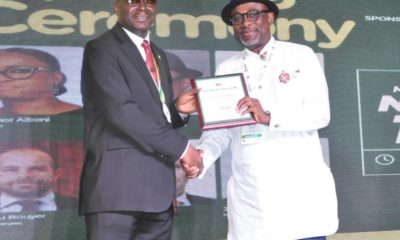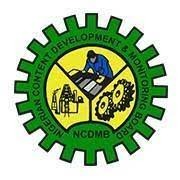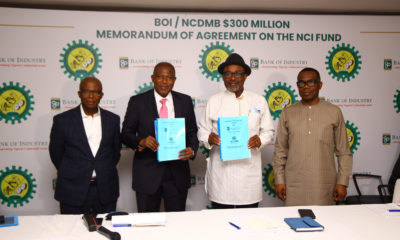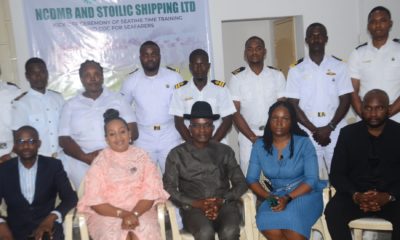NEWS
NCDMB to host Africa Local Content Investment Forum
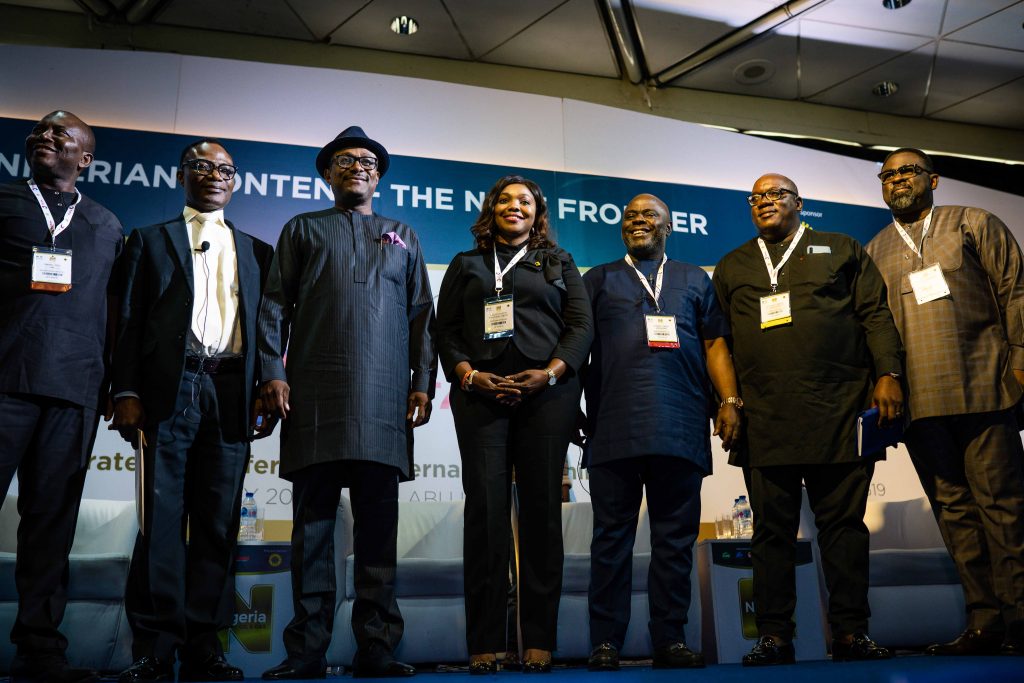
Lucky MOMOH
ABUJA-THE Nigerian Content Development and Monitoring Board (NCDMB) has announced plans to host the Africa Local Content Investment Forum (ALCIF) at Eko Hotels and Suites, Lagos on Monday, 7th March, 2022.
The event will provide a platform for African leaders in the oil and gas industry and financial sector, financial institutions, regulators, and regional bodies to meet and shape the future of the oil and gas industry in the continent amidst energy transition realities.
Expected at the event are delegates from 18 countries – mostly from the African Petroleum Producers Association (APPO), 140 financial institutions, and 400 participants from around Africa. The event is being facilitated by the Heritage Times and has its theme as “Developing a Pan African Strategy towards Sustainable Funding of Africa Oil and Gas Projects”.
The ALCIF is a sequel to the 1st African Local Content Roundtable hosted by the Board in June 2021 at the NCDMB Towers in Yenagoa, Bayelsa State.
Speaking ahead of the event, the Executive Secretary NCDMB, Engr. Simbi Kesiye Wabote stated that the Africa Local Content Investment Forum would seek to elevate Africa’s indigenous oil producers and national oil companies as the next generation of project producers involved in equity financing of exploration and field development activities.
He said the forum would also position Africa’s oil and gas service companies as funding blocks for research and development of technology required for exploration and production operations and position Africa’s financial institutions as providers of debt financing for oil and gas projects.
He noted that “the ongoing global energy transition is driving most international oil companies (IOCs) to declare commitments to reduce carbon emissions thereby scaling down investments in hydrocarbons development in favour of expanding renewable portfolios.” He added that leading global financial institutions are also reducing or eliminating portfolio allocations to oil and gas projects.
The Board’s sponsorship of the Africa Local Content Investment Forum (ALCIF) is in furtherance of the Nigerian Content 10-Year strategic Roadmap, which has a key aspiration to promote Local Content across the African continent and ensure access to market for oil and gas capacities that have been developed locally. The Board had consistently provided guidance to several African countries on the implementation of local content policies in their jurisdictions.
According to the organisers, the local content policy which has been implemented successfully in the Nigerian Oil and Gas Industry offers one of the most appealing economic development models for a self-reliant and resilient African economy.
They also noted that the energy transition agenda is posing new challenges to Africa in its quest to develop without dependence on finance, technology, and manpower from other geographical locations.
Africa accounts for eight percent of the world’s hydrocarbon reserves, with an estimated 126.388 billion barrels equivalent. The continent contributes three percent of global Gross Domestic Production despite having a population of over 1.373 billion people and being the second largest and second-most-populous continent on earth.
Analysts believe that the continent has the human resource base to leverage its hydrocarbon, minerals, and other natural resources to improve its Gross Domestic Product (GDP) contribution.
NEWS
How NERC’s New Commercial Billing Threatens Healthcare, Economy

The crippling impact of the newly introduced electricity billing, which classifies locations and businesses into two buckets of Band A or Band B has been decried.
President, Save-A-Life Foundation, Dr Richard Okoye, has expressed grave concerns about the scary electricity bill served on his hospital in Rivers State by the Port Harcourt Electricity Distribution (PHED).
His outcry was contained in a video clip which went viral on Thursday,
Following the new billing classification, which put his hospital in Band A, Dr Okoye was aggrieved that his monthly bill jumped to N25,300,000, which he noted would have devastating effects on the healthcare sector in Nigeria, as well as other businesses.
Dr Okoye is not the only person speaking up against the excessive hike in electricity bills.
President, the Trade Union Congress (TUC), Festus Osifo, had made a similar call during the May Day Rally in Abuja, where he strongly urged the Nigerian Electricity Regulatory Commission (NERC) to reverse the tariff hike within a week.
Osifo maintained that keeping the current billing levels would have severe impact on Nigeria’s economic growth, thus stressing the urgency of effective energy management to prevent further setbacks.
He maintained that the “glaring incompetence in managing this sector for the collective welfare of our citizens,” is a major factor constraining Nigeria’s economy.
The labour leader asserted that, “It is unethical to force Nigerians to pay higher tariffs for non-existent electricity. Estimated billing is an extortion and a daylight robbery against Nigerians.
Recall that the NERC on April 3, 2024 approved a significant increase in electricity tariffs for customers falling under the Band A classification.
Vice Chairman. NERC, Musliu Oseni, declared that the adjustment would raise the rate from the current N66 per kilowatt-hour to N225 per kilowatt-hour.
Though the billing reviews introduced by the NERC had attracted wide condemnation from Nigerians, the government had opted to stand behind the Commission.
For the government, the over 300 percent upward review was a take-it or leave-it for electricity consumers.
Nigeria’s Minister of Power, Adebayo Adelabu, who defended the scandalous review before the Senate pointed to the cost of infrastructure required to keep the sector running.
In his opinion, the only way to make the sector attractive to investors was to get the consumers to bear the cost of building and maintaining the infrastructure, which would also make the sector bankable.
Adelabu said, “For this sector to be revived, government need to spend nothing less than 10 billion dollars annually in the next 10 years.
“This is because of the infrastructure requirement for the stability of the sector. But government cannot afford that. And so we must make this sector attractive to investors and to lenders.
“So for us to attract investors and investment, we must make the sector attractive, and the only way it can be made attractive is that there must be commercial pricing.”
However, Dr Okoye’s position, which Netizens applaud, is that the government’s decision to jerk up Band A’s tariff, would be an epidemic against the healthcare sector and other busiensses.
He described moving from paying N66 per kilowatt to N225 per kilowatt as a ‘Band A tariff epidemic”, capable of destroying the healthcare system of Nigeria.
Dr Okoye said, “By reason of us (the hospital) being in Band A, our monthly power bill is now shooting up to N25,300,000. That’s crazy; the hospitals are not business centres but only renders essential services to society.
“This Band A tariff epidemic is bound to destroy the country’s healthcare system.
“We are already struggling with an influx of doctors leaving the country. The majority of the healthcare system is struggling, as it were. If nothing is done to urgently revisit that decision, the Band A tariff epidemics will turn most hospitals into morgues. Something that could be preventable.
“Power (electricity) is the life of the healthcare delivery. Patients have hope and a sense of living again when the light is in the hospital. In addition to that, the majority of emergency drugs and anaesthetic drugs always want to be at a particular temperature which can be sustained by electricity. If this decision persists, it will come to a point where most of the drug will be in an unusable state, and it is already happening.”
Narrating his experience during a medical engagement to elaborate on the need for a hospital to be on steady power supply, Dr Okoye pointed out that an elderly woman who was supposed to be operated upon was given the requisite volume of propofol needed for her to relax but could not sleep because the potency of the drug has reduced due to poor storage, occasioned by inadequate power supply.
“We were surprised and thought the woman was alcoholic, and the anaesthetic increased the dose a little and asked again, only for the woman to confirm that she was fine again.
“After evaluation, it was discovered that though the drug was original but not well preserved, it would lose potency.
“That is to say, those who are diabetic in Nigeria should brace up because the majority of them would see no way to buy their drugs.
“In fact, they need to travel miles to get a hospital with a steady light to get drugs they are taking.
“While this Band A is on, teaching hospitals and Federal Medical Centres which used to enjoy some relative form of light because perhaps they would not be billed like other people. They are now downgrading them to Band B and channelling Band A to those they feel can pay to the detriment of the people.
“I can count on and on. Power (supply) is what determines whether a surgical procession would be successful or not. It determines the ‘before and after’ outcome of any surgery.”
“If the instruments are not properly sterilised, they may be the ones resistant to all antibiotics known, that even when we start getting it right, the worst has already happened,” Dr Okoye pointed out.
According to him, the Nigerian government must act fast in this regard to avoid it having a severe impact on the hospitals, the healthcare system, the health of Nigerians, and businesses generally.
“My heart melts when a teaching hospital can pack its instruments to go and sterilise in another hospital because it doesn’t have light. The FG should act because it is preventable as it is now,” he stressed.
It would appear thought that the government might not have the final say on this, as a Federal High Court in Kano had already issued restraining orders on the NERC and the Kano Electricity Distribution Company (KEDC).
The court ordered the parties to refrain from implementing the new electricity tariff for Band A consumers.
NEWS
Kwara-based Catholic School Shines In 2024 UTME: 30 Students Score Above 300
The Eucharistic Heart of Jesus Model College, Ilorin, Kwara State, has made headlines with a remarkable achievement in the 2024 Unified Tertiary Matriculation Examination (UTME).
Revealed by Reverend Father Jude Okeh via his X handle, @friajudeo, the school proudly announced that 30 of its students scored impressively between 300 and 355 points.
Topping the list are Fasesin Ayomiposi and Kunle-Olawepo Ayomikun, both securing an outstanding 355 points.
Following closely are Adelodun Oluwadarasimi and Ayejuto Daniel with 341 points, and Idris Jamaaldeen with 333 points, showcasing the school’s commitment to academic excellence.
The UTME results have garnered attention amidst recent controversies surrounding the exam. With over 8,000 students nationwide achieving scores above 300, the proficiency demonstrated by these students from Eucharistic Heart of Jesus Model College stands as a testament to their dedication and the quality of education provided by the institution.
In a statement, Reverend Father Jude Okeh highlighted the significance of this achievement, particularly in light of the challenges faced by candidates nationwide.
Netizens have lauded the students’ success, acknowledging it as a remarkable feat amidst the backdrop of JAMB’s statistics, which revealed a significant number of candidates failing to meet the 200 marks threshold.
JAMB reiterated the purpose of the UTME as a ranking examination and cautioned against the proliferation of fake result slips.
The board emphasized the importance of relying on official channels for result verification, reaffirming its commitment to maintaining the integrity of the examination process.
The stellar performance of the students from Eucharistic Heart of Jesus Model College serves as a beacon of inspiration, reflecting the potential for excellence within the educational landscape of Kwara State and beyond.
NEWS
Fuel Crisis: No End In Sight As NNPC, IPMAN Fight Dirty

The ongoing fuel crisis appears to be a case of the grass suffering while two elephants fight.
The bone of contention seems to be that while the Nigerian Government wants to carry out minor reforms in the supply chain, and is assuring the public that the scarcity would end soon, the organised marketers appear focused on protecting the interests of its members.
Biztellers reports that about 8,000 operating licences of IPMAN’s members are threatened by a new policy of the National Petroleum Company Limited (NNPC Ltd).
Recall that the NNPC Ltd had placed a deadline of April 15, 2024, for marketers to renew their operating licences or risk being denied access to their customer express portals for the purchase of petroleum products from the NNPC Retail Limited.
However, the Independent Petroleum Marketers Association of Nigeria (IPMAN) had claimed that the registration processes and requirements were cumbersome, for which some of its members could not meet the deadline.
Consequently, the IPMAN requested an extension till July, so that its members could reconcile their licenses and address the lingering scarcity, which has compounded the economic woes confronting the ordinary Nigerian.
The IPMAN has also appealed to the Nigerian Midstream and Downstream Regulatory Authority (NMDRA) to release 9,000 already processed licences to its members.
The National Public Relations Officer, IPMAN, Chinedu Ukadike, gave an update on the Association’s position in a statement on Thursday in Abuja.
The statement read, “The Independent Petroleum Marketers Association of Nigeria are abreast with current developments in the downstream sector of our petroleum industry and wish to state that the latest information reaching us from the Nigerian Midstream and Downstream Petroleum Regulatory Authority states that they have already processed more than 9,000 out of the 15,000 licenses they are expected to process for our members within this period.
“Marketers are fast-tracking the processing of their licenses to avoid the impending closure of their customer express portals for purchase of petroleum products from NNPC Retail Limited.
“We, therefore, use this opportunity to appeal to the management of the NMDPRA and NNPC Retail Limited to respectively release the processed licenses and extend the deadline for delisting of marketers from their express portals.
“If our request is granted, it will ease the tension of panic buying by members of the public in order not to aggravate the present scarcity of petroleum products.”
In an earlier statement, the IPMAN had blamed the ongoing scarcity which had seen pump prices of Premium Motor Spirit (PMS) skyrocket to between N750/litre to N1,200/litre across Nigeria on turnaround maintenance of oversea suppliers of the product.
On its part, the NNPC Ltd had blamed logistics on the scarcity, which it claimed to have addressed.
The state oil company had also tried to address the situation by assuring of sufficient stock and increased product supplies, yet, the IPMAN members appear to be sticking to their gun, in protection of members’ interests, by controlling sales to the public.
Recall that the Chairman, IPMAN Depot Chairmen Forum, Yahaya Alhassan, had on Tuesday threatened to shut down the 30,000 stations operated by IPMAN members across the country if the Federal Government failed to pay the N200bn that was being owed marketers.
The IPMAN’s position was contained in a communique issued in Abuja by over the non-payment of marketers’ bridging claims.
According to the IPMAN, the NMDPRA had refused to clear the debt, which had continued to accrue since September 2022.
It might just be that the two elephants are keeping the bone of contention close their chests and feeding members of the public with tales by the moonlight.
In the interim, the economic hardship continues to bite harder, with common Nigerians at the receiving end.

